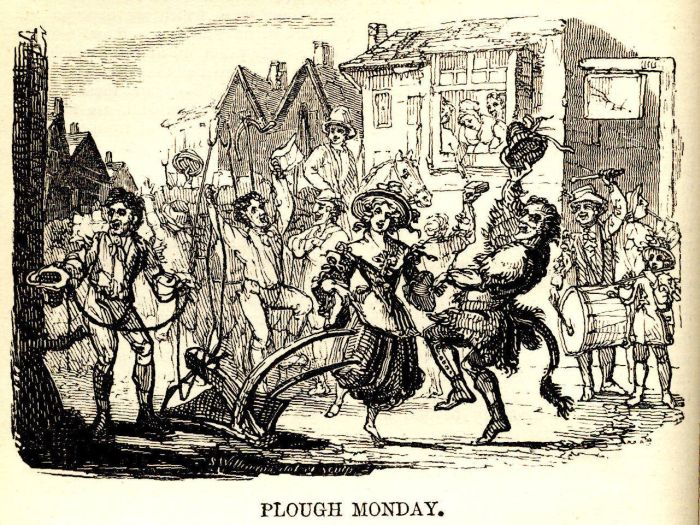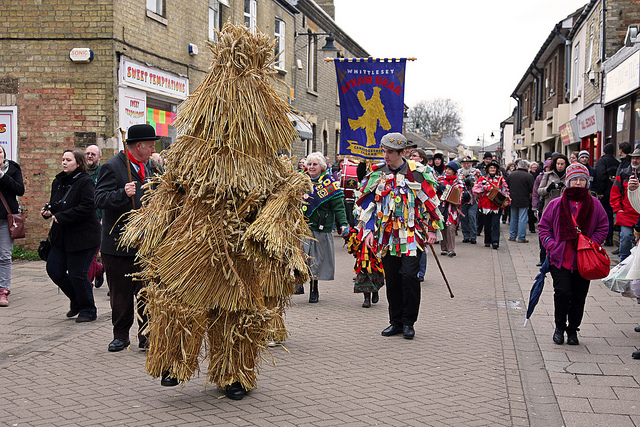Plough Monday
Plough Monday falls on the first Monday after the twelfth night of Christmas, which is also the night of the Epiphany. It marks the beginning of the English agricultural year and when ploughmen traditionally returned to the fields to prepare the Spring crops.

Still celebrated in some parts of the the north and east of England, the tradition is to trail a plough around local houses to collect money to pay for a community feast. If the person or household is unwilling to contribute then the assembled ploughmen and ploughboys, usually in fancy dress and blackened or reddened faces, would turn their doorstep over with the plough or cut a deep furrow in front of their door.
The celebration of Plough Monday dates back to the fifteenth century, and it may have grown from an older, pagan tradition marking the beginning of Spring (though there is only slight evidence). While the specifics of each celebration may differ, it is the exchange of money which crops up again and again. It is thought that the money taken in by plough teams would help maintain a ‘plough light’ in the local church, but after the Reformation this tradition fell off and the money began to be used for festivities instead.
What is interesting about Plough Monday is how a fairly odd tradition was so prevalent across Yorkshire, Lincolnshire and East Anglia but is rare in the rest of the country. Peter Millington has an interesting discussion of various hypotheses on his website, including whether it was an imported Danish tradition, was established as part of Danish Law or was connected with the establishment of the Archbishophric of York in the eleventh century. Whatever its origin, it is a delightful slice of English rural life and you can find out if there is an event near you here.

Share This Post :
3 thoughts on “Plough Monday”
Leave a Reply
You must be logged in to post a comment.

Growing up in South Lincolnshire, the highlight of the liturgical year was Plough Sunday and its service that blessed the plough. Then a big tea afterwards. We also rogated the village in June.
When I did my MA in Medieval Studies, I was firmly told these medieval customs didn’t have any more. WRONNNNNG!
Lovely post!
Plough Sunday, or the Blessing of the Plough seems to be a back-formation from Plough Monday in this corner of the Diocese of Ely, where I am a parish priest. The old horse-drawn plough is brought into the church porch to be blessed, and a big new one is usually parked on the grass outside the lych gate as well. Three farmers come into church and execute a set of traditional responses (‘God speed the plough, etc’) after which I pronounce a blessing on the ploughs and on the agricultural year.